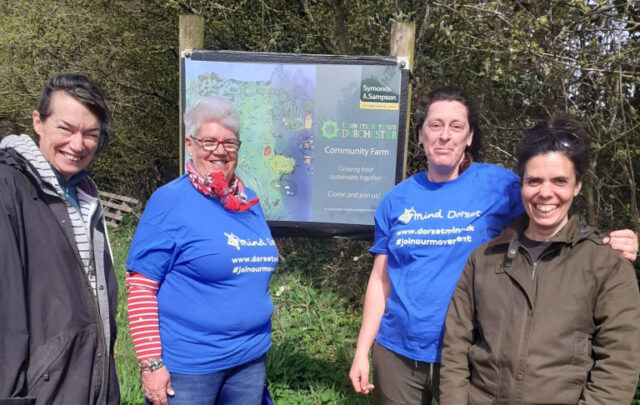Click on the headline (link) for the full text.
Many more articles are available through the Energy Bulletin homepage
Michael Pollan Fixes Dinner (Extended Interview)
Clara Jeffery, Mother Jones
America’s favorite food intellectual talks about ethanol, the carrot lobby, and secularizing food.
—
… MJ: Your books have gone from very interior, literally, to large. The audience expands and expands. Has the transition to being the public face of food activism been difficult?
MP: Very unexpected. My work has gotten more political over time, but once you start exploring food you find you’re up against economics and politics and psychology and anthropology, all of these different things you have to deal with. I think as a career matter—you know, I used to be a magazine editor, and that’s where I did my politics, that’s where I thought politically. And my writing was something over here. That was separate and could be a lot more personal and intimate. It wasn’t as public, even though you’re publishing books. As I gave up editing and became a full-time writer there had to be an outlet for my political side. That’s part of what has driven that progression, though I could easily see writing a much more personal book. I’m not going to be writing a whole lot of manifestos; that was pretty unusual. But that comes from sensing a political moment. If you read Omnivore’s Dilemma it’s not a political book, you see. It tells the story of these food chains and it follows them. There aren’t any proscriptions. The last chapter didn’t tell anyone to do anything. I just went hunting and made a really amazing meal. And “That’s not practical; what do we do with that?” It’s really in the next book that I try to draw some political lessons. For me as a journalist I felt a little uncomfortable being prescriptive. I didn’t think that was the proper role of a journalist. I guess I’ve gotten over that.
MJ: Is it hard? You most be called on to be the spokesman on these issues all the time.
MP: Very hard. You still have to draw lines between being a journalist and an activist. There’s no question. I can be an activist in my writing and I can be an activist as a citizen but there’s a place where it gets mushy.
(March/April 2009)
This is a longer version of an interview to which we previously pointed. -BA
Vancouver latest municipality to allow urban chickens
Catherine Rolfsen, Vancouver Sun
… Vancouver is the latest municipality to jump on the urban chicken bandwagon. New York City, Seattle, Portland, Victoria, Burnaby and Richmond all allow backyard hens in some way or another. Online resources and how-to books abound touting the joys of fresh and sustainable eggs.
(5 March 2009)
Where there’s Muck… the joy of a well aged compost
Rob Hopkins, Transition Culture
I never would have thought, until I had spent some time immersed in the world of permaculture and growing my own, that a large pile of rotting manure could be a source of such pleasure. There is something utterly magical about the biological processes that go on in a pile of decomposing organic matter, as the microfauna and bacteria alchemically transform it from one thing into an almost entirely different thing. It really is something worth getting very, very excited about.
… One of my composting heroes is Marcus McCabe, of the Ark Permaculture Project at Clones in Co. Monaghan in Ireland. Marcus was fascinated/obsessed with the composting of human waste, and as a commercial reed bed installer, held firmly to the belief that the best way to treat human waste was to not mix it with water in the first place. As a result, over the years, he tried virtually every dry composting toilet system available (each fresh visit would find you sitting on a different toilet) and ended up concluding that the humanure bucket system was by far the most superior, the Rolls Royce of composting toilets
I will always remember going to a conference on green building at the Cultivate Centre in Dublin, where Marcus was billed as giving a talk about constructed wetlands. The audience consisted of many suited folks, planners, directors of construction companies and other people of great gravitas and importance. Within the first couple of minutes, Marcus had dismissed the entire idea of mixing human waste and water, and spent the next 15 minutes extolling the virtues of, in effect, shitting in a bucket and composting it in the garden. It was a wonderful tour de force, back up with the science of composting and an unarguable plea for common sense and an end to faecophobia.
The climax of the talk, having set out the case for humanure and for the revival of the fine art of home composting, was Marcus producing a large bucket of his finest homemade humanure compost, which he then gave to the audience who then proceeded to pass it round the entire hall. It was fascinating to see how each new person reacted as the bucket approached them. First they were all ‘yuk’ faces and giggling, then as they looked over the rim of the rather large bucket, there was an ‘aha’ moment and a real fascination, all sense of ‘yuk’ gone, as they saw what was not the bucket of putrid excrement they had been expecting but some rather fine and crumbly compost. It was wonderful to observe.
(6 March 2009)
Nine meals from anarchy?
Richard Cornish, The Age (Australia)
HE LOOKS more like a genial uncle than a harbinger of doom, but the UK Soil Association’s Patrick Holden visited Australia recently to deliver a sobering message.
Holden, the head of the Bristol-based charitable organisation that promotes organic farming, gave a series of public lectures in Sydney and met food industry figures at a private meal hosted by Kylie Kwong. Sometimes referred to as the Al Gore of food security, Holden warned that if the west doesn’t focus on shoring up food security it could leave itself open to a food crisis.
“Think of the global credit crises,” he says. “Well, in 10 to 15 years we could see something similar happen with food, a sort of global food crunch. This would have far worse consequences than this financial crises … In just a few generations we have burned almost all our reserves of fossil fuel and pumped the gas into the atmosphere.”
Holden refers to the fact that almost all the food in the Western world is grown using oil. Tractors and harvesters run on diesel, chemical pesticides are made from oil; fertilisers are either made directly from oil or mined from rapidly diminishing mineral reserves.
He also describes a global food production and distribution system that uses oil to transport food not only around the world but within national borders.
“We rely so much on oil for our food that if something were to disrupt that supply, such as a political incident like we saw recently when Russia cut off gas supplies to Europe this winter, terrorism or war, then our food stocks would run out.
“We must also consider that we have reached peak oil production and it’s just going to get more expensive from now on.”
(10 March 2009)





